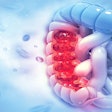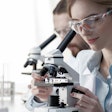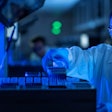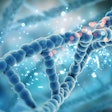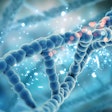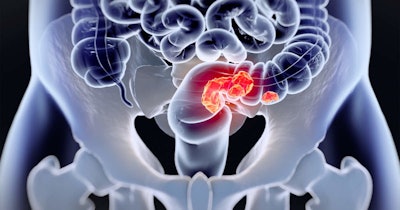
Researchers at Georgetown University’s Lombardi Comprehensive Cancer Center studied the microbiomes of people with colorectal cancer and found that the makeup of bacteria, fungi, and viruses in their tumors varied significantly depending on whether they had early-onset (age 45 or younger) or late-onset (age 65 or older) disease.
The findings will be presented at the American Society of Clinical Oncology’s 2023 annual meeting in Chicago this June.
Colorectal cancer incidence has been declining for several decades in people over 55, partly due to increased screening, including colonoscopies, which can find and remove polyps before they become cancerous. But nearly double the number of adults under 55 are being diagnosed with colorectal cancer compared to a decade ago, with incidence rates increasing from 11% in 1995 to 20% in 2020.
Certain microbes were previously known to disturb the colon lining and promote tissue inflammation, resulting in DNA mutations in colon cells, and potentially leading to cancer. Researchers have known that that one bacterium, Fusobacterium nucleatum (F. nuc), promoted cancerous growth by suppressing the colon’s immune responses.
To better understand how the microbiome’s role varied depending upon a person’s age at colorectal cancer onset, the team compared tumor DNA and microbiomes from 36 patients with colorectal cancer who were diagnosed before age 45 to similar samples from 27 people diagnosed after age 65.
Overall, the researchers detected 917 unique bacterial and fungal species in the tumors. One of the most common bacteria was F. nuc, which appeared equally in about 30% of both early- and late-onset tumors. Differences were seen in Cladosporium sp., which was found more commonly in early-onset disease, whereas Pseudomonas luteola, Ralstonia sp., and Moraxella osloensis were more commonly seen in late-onset disease. In terms of composition, Clostridium perfringens, Escherichia coli, Leptotrichia hofstadii, Mycosphaerella sp., Neodevriesia modesta, Penicillium sp., and Leptosphaeria sp. each made up 11% of the microbiome in people with late-onset disease. However, these organisms were not found in people with early-onset disease.
Given the tumor genetic data and diet questionnaire results provided by patients, along with anticipated future data collection, the researchers plan to continue exploring the relationship between tumor microbiomes and other factors contributing to colorectal cancer. They are also interested in learning how circulating microbiomes, such as bacteria in blood samples, might correlate with bacteria in the gut and in the tumor.
“Younger people with colorectal cancer have more biologically aggressive cancers and whatever survival benefit they have by being younger is outweighed by the more aggressive tumor biology,” Dr. Benjamin Adam Weinberg, associate professor of medicine at Georgetown University, said in a statement. “But we have trillions of bacteria residing in our body, including in our gut, some of which are implicated in the development of colorectal cancer. Hence, we think the microbiome may be an important factor in the development of the disease, as it is involved in the interplay between a person’s genetics, environment, diet, and immune system.”
Disclosures: Dr. Weinberg serves on advisory boards for Bayer, HalioDx, AstraZeneca/Daiichi Sankyo, Merus, and DoMore Diagnostics; serves on speakers' bureaus for Lilly, Bayer, Taiho, Sirtex, HalioDx, AstraZeneca/Daiichi Sankyo, Merus, and Seagen; and has received travel funding from Caris and Merus.













